If you listen to the podcast, you’ll know I’m a big fan of Heroes, even though I occasionally have some big problems with it. After watching the latest episode, I’ve come to terms with the fact that this fantastic show still is quite broken, but it’s not beyond repair. Here’s a list of what’s wrong with Heroes, along with how I think it could be fixed.
1. Godlike Characters
By the end of season one, it was apparent that Sylar was literally far more powerful than almost every other character on the show. If someone with a greater power came along, Sylar could just grab their brain and make the ability his own. If Sylar was uber-powerful, though, Peter was downright godlike. He could absorb others’ powers just by walking past them. The ever growing arsenal of powers between Peter and Sylar built to an inevitable confrontation at the end of the first season. Though underwhelming in the action and payoff, the final battle of season one provided an opportunity to level the playing field by doing what any good comic book does when a character becomes too powerful: take the powerful characters-or at least their powers-off the playing field.
Season two began with Peter having amnesia and Sylar having lost his abilities. They both eventually regained their full superpowered capacities, though, returning them both to the top of the Heroes heap. Having characters this powerful completely unbalances the drama, and it makes the audience very aware that there is an ever present deus ex machina, in the form of two main cast members. Because I know that Peter and Sylar can do pretty much anything they want by now, nothing they do surprises me anymore, and I never feel suspense about anything regarding their characters. Sure, a bullet to the brain can stop either of them (until the bullet falls out or is removed), but really… Is it a good thing that there are two main characters who are virtually omnipotent?
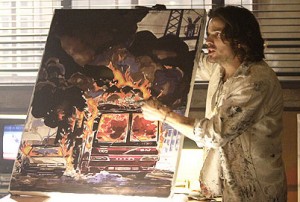 2. Non-Unique Powers
2. Non-Unique Powers
As Peter and Sylar have become too special because of the greatness of their abilities, the rest of the cast has become homogenized. In the first season, each character was important and special because every one of them had a unique ability. Isaac was the painting guy, Matt was the mind reader, Claire was the healing factor girl, Nathan was the flyer, Hiro was the teleporter / time traveler, and so on. Whenever a powered character died, it really meant something profound, because their unique ability was lost along with that character. Having unique powers made every character important, and it heightened the suspense as we worried that Sylar would not only destroy a character but also would rob Heroes of another power that we’d never see again.
That all began to change when Peter was able to use the others’ abilities. This was a plot point, though, as the whole point of Peter’s character was that he relied on others to provide him with their abilities, which he then mimicked. If it had stopped there, it would have been at least a bit more okay than what it’s become. Now we have a different character going Isaac-white-eyed in nearly every episode, and even Matt’s African friend is making Tim Sale paintings on rocks in the desert. Everybody from Ma Petrelli to Matt Parkman is having prophetic dreams nowadays, and immortality is the new “in” thing, adopted by Adam, Claire, Sylar, and likely Peter. Spreading the powers thinly like this makes characters more expendable and less critical to the story. This, in turn, makes the viewer at least a little less invested in and attached to each Hero.
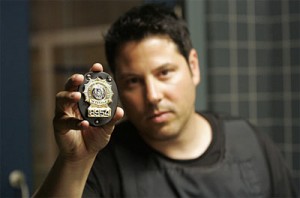 3. No Secret Identities
3. No Secret Identities
The loss of uniqueness among the powers is not the only unfortunate loss for the characters. Whereas we used to see all the characters dealing with their newfound powers while living their otherwise normal lives, now we never see anything even approaching normalcy for any of the characters. The closest we’ve come this season is seeing Nathan reentering politics, and how relatable is that, really?
The early days of Heroes showed us Peter working as a nurse and having a complicated relationship with Simone, a non-powered woman who also was connected to Issac, a heroin addict who recently developed powers. We had Claire hiding her abilities from her family while she tried to live a normal life and be a cheerleader. We had Hiro reveling in his awesome new powers while trying to live up to his dad’s and Japanese society’s expectations of him. We had Niki working as an Internet stripper to support her son when she developed her split personality and super strength. We had Matt working as a good cop with marital problems, which became exacerbated when he started hearing others’ thoughts. We had Nathan being a slimy politico, desperately trying to hide his flight from his family and from his career. And we even had Sylar traveling around the country as a terrifyingly understandable serial killer. This layer of real life situations made the Heroes more relatable, and it gave the overall series an extra layer of drama and conflict.
These days, we almost never see the characters doing anything normal. It’s all about the powers, the conspiracies, and the melodrama, without any temperance by normalcy. The loss of a “secret identity” element is a sad development that distances these superpowered beings from the audience who previously could at least partly identify with their plights.
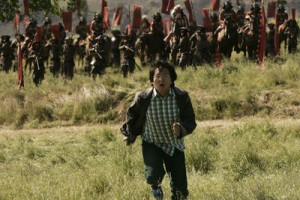 4. Too Much Time Travel
4. Too Much Time Travel
Another element of Heroes that increasingly serves to distance the audience from the characters has been time travel. Season one established that Hiro was the show’s time jumper, and in a masterful episode he leaped into the future and saw the devastation that awaited in the future. Hiro’s first season future jump worked because it was a unique view at an alternate reality where our Heroes were hardly recognizable, the world was drastically different, and we had no idea how such horrible things could have come to pass.
By the second season, Peter had cottoned on to the whole time jump thing himself, and he was popping into a plague-ridden future to view, again, dystopian devastation. Meanwhile Hiro jumped into the distant past to play out an unfortunately disconnected storyline about his childhood hero, Takezo Kensei. And now, in season three, the time jumping is at an all time high, to the point that we see nearly as much of the future / alternate universe versions of the characters as we do of the current / real universe versions. All of these different versions of characters, along with the frequency with which we see them, robs us of the uniqueness that first future-universe episode held in season one. Now we’re used to seeing the future, and we’re bombarded with conflicting messages and impressions about characters to the point of virtual disconnect from the very people we’re supposed to be caring about.
As if that were not bad enough, time travel also has become a narrative crutch. Time after time now, we see characters leaping nonchalantly back and forth in time, observing the horrible future, and then dreading it while they try to avert it. Season one had Hiro seeing a nuked New York, season two had Peter walking through a world ravaged by the Shanti virus, and now season three has both Hiro and Peter observing a future where a proliferation of artificially powered heroes brings about the end of the world. Seeing the future has become the go-to device for establishing a goal on Heroes, and it just doesn’t work anymore. It’s a card that’s been played too many times, and it lacks any punch or surprise at this point.
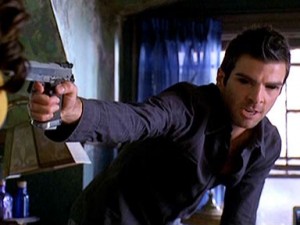 5. No Unifying Evil
5. No Unifying Evil
The prophetic dreams and future worlds have tried unsuccessfully to establish motivation and goals for our Heroes, but another essential factor has been missing since the end of season one. There’s no unifying and specific evil to draw all the characters (and the audience) together for a common cause. The first season presented us from the beginning with the horrifying crimes perpetrated by Sylar. We knew from the start that season one would be about the pursuit of this superpowered killer, and we wanted to see the resolution of the story.
Once Sylar was dealt with, however, things fell apart into a loose jumble of vague threats. The second season had a number of baddies, from Adam / Kensei to Matt’s dad, but the overarching villain was supposed to be the Shanti virus. Having a faceless threat is a very difficult thing to pull off effectively on fictional TV, though. There’s much greater drama in having a person to attach to the evil that’s happening, and resolving the threat by dealing with that person provides a greater satisfaction for the audience than just nullifying a virus or stopping a biological disaster. Season three began strongly with the escape of what was supposed to have been a team of extremely dangerous felons. Their story ended abruptly and far too soon, to be replaced with muddled and unclear villains such as dark-haired future-Claire, invisible-Linderman, and is-he-or-isn’t-he-bad-Sylar. Without a clear and present danger for the characters to join against, it’s hard to find a compelling reason to care about their plight.
How To Fix It
Even though Heroes is stumbling, it’s not beyond the hope of repair. Here’s how I’d correct the course at this point, a few episodes into the third season:
- Clarify Peter’s and Sylar’s power sets or get rid of them entirely.
We need to know specifically what each character can and can’t do so that we can understand their limits and their capabilities. If they’re overpowered to the point of absurdity without hope of clarifying things, either their powers should be lost or decreased by some permanent means, or the characters themselves should die in a manner that heavily affects the rest of the characters. If season one had ended with Sylar dying and Peter heroically sacrificing himself by blowing up with Nathan, this problem would not exist (although many fans of both characters undoubtedly would disagree with me). - Get rid of duplicated powers.
Anyone redundant should be cut from the story, and there should be no cop outs that allow characters to borrow others’ abilities. Matt shouldn’t be able to dream the future by drinking funky tea, and no character after Isaac’s death should be able to paint the future. - Make the superhumans human.
All the characters need real lives to live while they’re dealing with their apocalypse averting stories. How is Matt earning money now? Does Peter even have a job? Don’t Claire’s former classmates wonder what’s happened to her? These characters should not live in a bubble, and we should see more of the “real life” stuff that affects them. - Nix the time travel.
By now, we’re so supersaturated with time travel that it has lost nearly all of its punch. Peter should lose his ability to time jump, and Hiro should reaffirm his vow to be careful with time travel… to the point of doing it maybe once in a season and using his power to teleport or to stop or slow time for the rest of the season. - Give us a bad guy.
With all the Heroes running around doing their own things, and with all the implied evil going on, we need a clear villain to focus on. Having a collection of scattered morally questionable people is not enough. We need one specific person (or a few specific people, if they wanted to go the villain team route) to serve as the clear antagonist. In comic books, it’s usually pretty clear who the bad guy is. Heroes is a televised comic book, and it should get the same treatment.


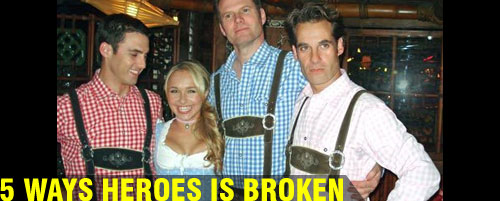
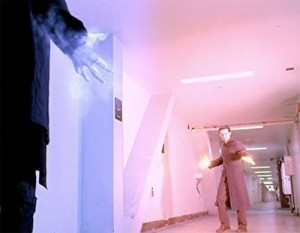
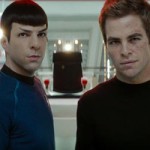
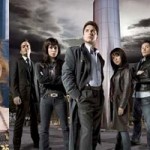
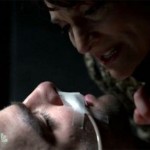
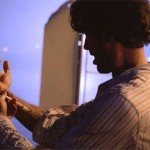
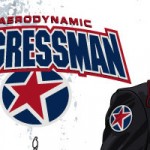
You are so right on! Great analysis–I hope they listen to you.
100% agree. This show has been a sinking ship since the end of season 1.
By killing off a lot of charecters from season 1(Peter/Sylar/Nathan/DL) while keeping some, they could of added a couple more to the mix in season 2 then focused on something new.
I agree with most of your analysis- cept for the normal lives bit. I was bored to tears when we have to view Claire’s high school world, or watch Matt deal with the police bureaucracy. A better idea is that normalcy needs to be readjusted to suit the new given circumstances- these people live extraordinary lives, so what does normalcy mean for them- which I doubt means going to school, drinking that cup of coffee, sitting in a desk, and going to the movies in the evening.
Otherwise- spot on!